

Did you know that your digital footprint might outlast your physical presence on Earth? Yes, the cloud accounts and social media profiles you're managing today could persist beyond your lifetime, capturing moments you thought were transient.
With our lives increasingly buried in apps and data, understanding what happens to our online identities after we’re gone is crucial. And, astonishingly, this subject is more relevant now than ever before.

Surprisingly, most people have no idea that their treasured online memories could become inaccessible. Platforms like Facebook provide options for memorializing accounts, but a shocking number of users haven’t set up these digital wills. Consider this: many cloud services have policies in place to delete dormant accounts after a set period, yet the alarming truth is few are aware of this expiration clock. But that’s not even the wildest part…
You might assume your loved ones can simply log into your accounts. However, access isn't as straightforward as knowing the password. Due to privacy policies and laws, they might need a legal order to handle what seems like your ‘digital estate.’ Intriguing, right? But wait—this gets even more complicated as you dig deeper into the fine print of these policies. What happens next shocked even the experts…
The concept of a ‘digital afterlife’ may seem like something out of a sci-fi novel, but it’s more grounded in reality than you'd think. Your online presence is embedded in a web of servers worldwide, making it surprisingly durable. So, even if physical traces fade, digital ones are resilient. The way in which Google prompts account owners to designate legacy managers is a reminder of how these echoes linger longer than expected. And there's more to it than just leaving behind photos or old emails.
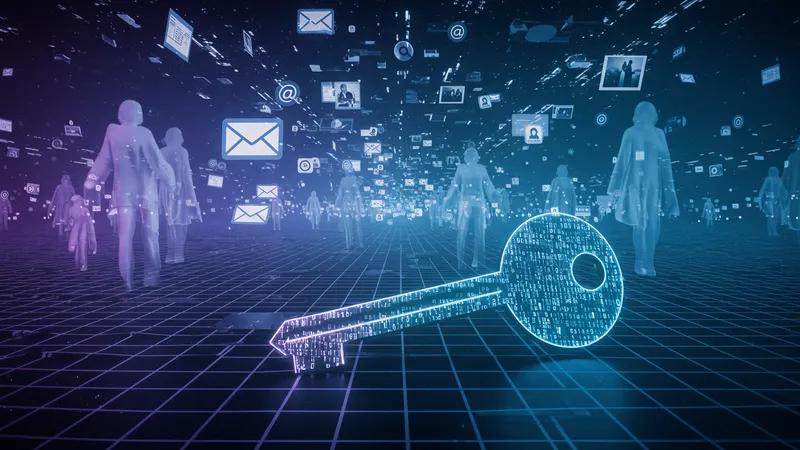
Much of what you consider private—the messages, saved searches, or shopping history—is stored in substantial silos by tech giants. These digital companies often refurbish their data policies to safeguard such information, yet the question of ownership after death is still largely unresolved. But what if I told you that even with these unresolved questions, your digital identity is a valuable asset waiting to be inherited? There's a layer here most aren't aware of…
For those managing multiple online accounts, it’s essential to reassess your digital hygiene. Regularly updating passwords, reviewing account settings for ‘inactive account managers’, and even employing password managers form part of this hygiene. Tools like LastPass and 1Password allow you to safely store credentials, creating a seamless way for nominated individuals to take over. An unexpected twist is how these tools are burgeoning in popularity as we rely on online vaults for security.
But even beyond access, there’s the cultural aspect to consider. Memorializing digital profiles isn’t just about securing data; it's about maintaining narratives and stories that continue to speak across generations. Having a digital legacy doesn't just affect families left behind—it also enriches historical archives with vibrant personal stories. But here’s the kicker: this burgeoning sphere of digital legacies may soon face its own type of disruption…
If you're thinking, "Who cares what happens to my online accounts?" think again. Digital assets are shaping a new frontier of legal estate planning, and the complications are all too real. Consider the simple act of accessing a deceased's email—what was once straightforward now navigates a complex landscape of privacy rights.

Take the fine print of user agreements. These meticulously crafted contracts hold more sway than anyone might assume—each company dictating terms regarding posthumous management. Yet, all too often, users haphazardly click ‘agree,’ unaware of the intricate maze that loved ones might step into.
Statutes like the Revised Uniform Fiduciary Access to Digital Assets Act (RUFADAA) offer some relief, granting appointed individuals the ability to access digital assets in certain jurisdictions. It’s a legal patchwork that establishes digital rights but still lacks universal breadth. But there's another twist here—what about the digital possessions that users might not even remember accumulating?
Indeed, according to a survey, two-thirds of internet users have more online accounts than they can remember. The thought of all those forgotten membership sites, online subscriptions, and miscellaneous registrations is massively overwhelming. Imagine trying to manage or close all those accounts! It’s an administrative nightmare that’s prompting changes in how we approach digital estate planning. But there's more to discover as you delve into personal stories of those who've navigated this labyrinth…
Lisa’s story is a cautionary tale—the day her dad passed away, nobody knew the password to his photography portfolio. The loss of revenue and his creative contribution was heartbreaking. Turns out, this isn’t a rare occurrence. Many families hit these digital barriers during already difficult times.
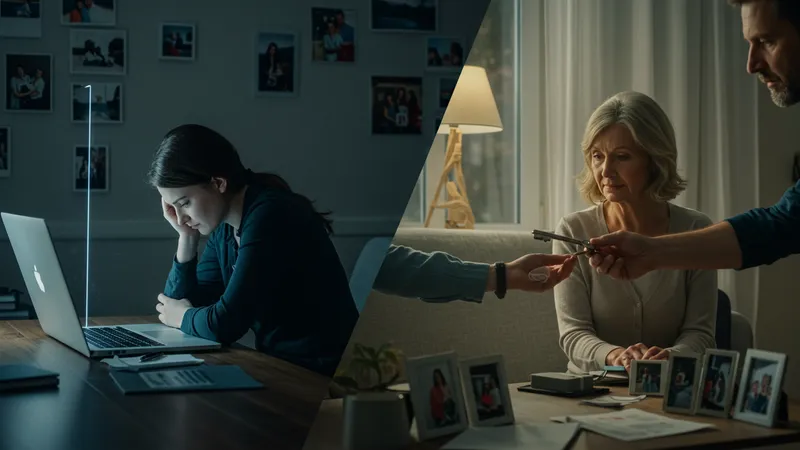
And then there’s Robert, who had a different experience. He utilized Apple's Digital Legacy to ensure his wife had access to his digital assets, sparing her potential headaches. This foresight meant that she not only managed their shared financial affairs smoothly but also retained access to cherished memories. It’s a simple step—yet many overlook it, leading to emotional and financial strain.
Mary accidentally discovered how a forgotten iTunes library held a treasure trove of digital films and music. As licensing laws become more defined, such personal archives could hold unexpected value. As users grasp the magnitude or potential, this digital gold rush is aligning with new cultural shifts in how we value digital memories. Could this mean more secure digital legacies through technology?
While some are turning to professionals to manage their digital estates, others adopt DIY strategies like maintaining encrypted spreadsheets. The insights from these stories reinforce a critical question: what's the most practical way to ensure both security and legacy in a digital world? Surprising as it may be, even tech companies are starting to respond to these needs…but what's their plan, really?
Over the past few years, tech behemoths have slightly peeled back the curtain on their strategies for dealing with digital legacies. Facebook, for instance, allows users to choose legacy contacts who can manage commemorated profiles without risking the privacy of the account holder’s personal data.
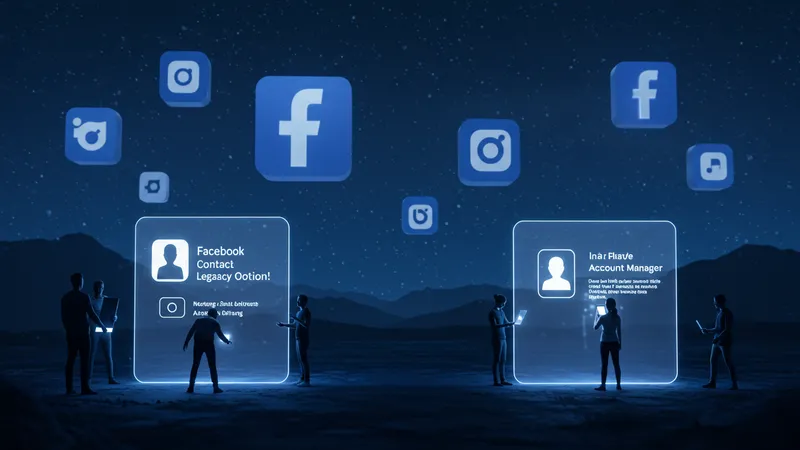
Google's Inactive Account Manager lets you designate trusted individuals to receive your data if your account goes dormant. These developments mark a significant shift towards institutionalizing digital legacy planning. But the story doesn't end there—other companies are testing even more sophisticated solutions.
With the boom of blockchain technology, digital wills are gaining traction. This innovation offers users a way to distribute digital assets securely, promising untampered legacies. Imagine the relief of knowing your carefully curated Spotify playlists and those crypto investments are in reliable hands!
Still, these tech solutions remain relatively new and often lack compatibility and standardization across platforms. It leaves the question open: can digital legacy planning ever be as seamless as it is promised to be? Continuing to explore, we find that innovation is pushing boundaries, but conventional approaches are also evolving in interesting ways…
Estate planning might evoke images of ivy-covered law offices and thick legal tomes. But today’s estate planners are just as likely to consult on Facebook access as they are on financial matters. This evolution shows how traditional practices are adapting, but are they evolving fast enough?

Law firms are increasingly advising clients to consider their digital assets when drafting wills, ensuring digital forays are well accounted for. Of course, this involves repeated dialogues between tech experts and legal professionals to merge digital rights and legal structures. The bridge between these realms is essential, but it’s not without challenges.
In response, educational workshops on digital estate planning are multiplying. They're guiding people in structuring wills with broader reach and providing checklists for digital assets. These efforts hint at a wider acceptance of the irreversible intertwining of our physical and digital worlds. Yet, a question lingers: how prepared are we as a society to fully embrace this?
Amidst these efforts, there’s a growing public consciousness around data control and ownership. Interestingly, this awareness is reshaping personal privacy and future-proofing digital legacies. It hints at a societal shift to wield control over digital footprints, revisiting old notions of inheritance. But there’s one more twist to this digital evolution…
The digital age has brought about a paradigmatic shift not just in how data is retained but also in how it's perceived emotionally. On the surface, strategies around account continuity or data access may seem purely logistical. Delving deeper, it becomes clear that emotional connection underscores these decisions.

For many, online profiles and digital content are living records; touchpoints to loved ones, cherished narratives, and memory arcs profoundly preserved. When contemplating these aspects, the potential to memorialize online lives turns into more than a digital management task—it's an act of preserving human connections.
Transcending mere data, social media spaces often become digital sanctuaries. Friends and family may frequent these spaces, sharing remembrances and fostering communities of memory. This phenomenon has spurred platforms to optimize features for mindfulness and memory preservation, sparking conversations on the boundaries of digital mortality.
The most fulfilling outcomes of managing one's digital legacy involve weaving emotional threads into this intricate tapestry. As digital landscapes unfold, this emerging notion is an invitation to perceive legacy affairs beyond upkeep or management. But beyond sentiment and strategy, another layer emerges: innovation in digital memorialization is already reshaping common perceptions…
In an intriguing blend of tech and emotion, new platforms are emerging to harmonize the essence of digital memories with innovative memorialization. Companies like Legacy provide online obituaries with interactive aspects, allowing friends and family to contribute with photos and stories. This enriches the narrative of a life lived.
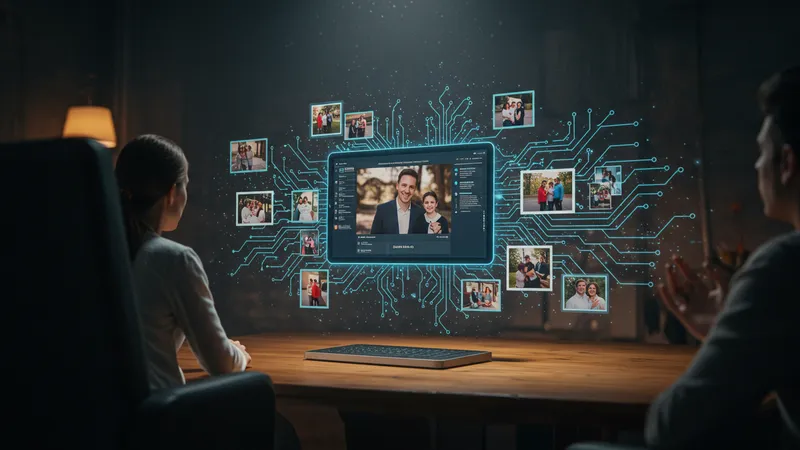
Interestingly, artificial intelligence is making its way into memorial spaces. Consider AI-driven tools that compile and summarize social media activities into coherent narratives—a creative leap from traditional approaches. Coupled with services that use machine learning to sift through and archive cherished memories, technology is steadily crafting future legacies in a personal way.
This approach invites reflections on life that serve more than a social function; they create reservoirs of emotions and stories, accessible for generations. It’s the kind of innovation that rings true with audiences who seek to cherish moments, imbuing them with symbolic significance.
However, these advances also ignite debates on privacy and the moral dimensions of such digital artifacts. Are we paying enough attention to the ethical nuances of AI-generated legacies? As this dialogue unfolds, let's explore how it will redefine perceptions of memory and digital afterlives…
In an era where privacy and data security are under constant scrutiny, the path toward achieving digital immortality treads a precarious line. The thought of living digitally forever raises complex questions about individual privacy rights and ownership of data.
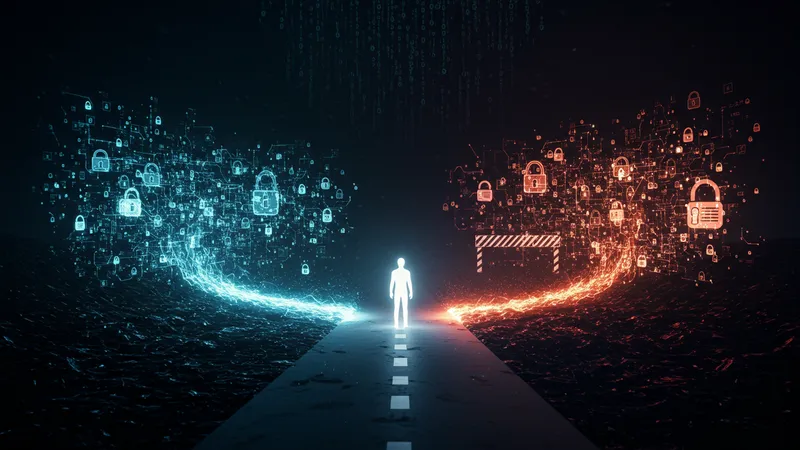
Much of it revolves around consent—who grants permission for AI-driven profiles or perpetual data storage? As society wrestles with these implications, a future emerges where individuals might seek greater control over their digital legacies—a testament to the rising insistence on digital sovereignty.
There's also the pressing concern of how much of this data could be susceptible to exploitation. With cyber threats evolving, how secure are these platforms that promise digital legacies? This brings to light the growing awareness and demand for more robust cybersecurity measures, ensuring personal data remains inviolate.
As privacy gets increasingly entangled with technology’s forward march, the balance between digital legacy and data protection takes center stage. It’s an ongoing tension with profound consequences, sparking critical dialogues on innovation and ethical regulations. But what you read next might change how you see this forever...
The economic ramifications of digital legacies stretch beyond individuals, influencing industries that now cater explicitly to managing these assets. This ecosystem, replete with legal consulting, tech solutions, and financial planning, signifies a burgeoning market.

Financial institutions are recognizing this shift, introducing services tailored to digital inheritance—whether it’s securing online assets or including digital estate considerations in family financial goals. This has also spurred a rethinking of digital assets as tangible—introducing notions of value and trust in ownership.
Simultaneously, tech firms are capitalizing on this reality by refining offerings with encrypted storage and digital handover processes. This competitive landscape drives innovation, while presenting equal challenges in ensuring reliability and adhering to regulatory frameworks.
The ripple effect of digital legacy industries highlights not merely an enthusiastic response but an economic shift likely to endure. By contemplating these facets, it becomes clear: the monetization of digital legacies is more than just a trend; it represents an emerging frontier. But what happens when the lines between life and digital existence blur even further?
Digital legacies are evolving from back-of-the-napkin ideas to a pivotal component of our societal landscapes. As data becomes an undeniable part of identity, its management captures imaginations, presenting possibilities beyond mere experimentation.

Augmented reality (AR) and virtual reality (VR) are set to reinvent digital interactions posthumously. Imagine attending a virtual memorial service, where holographic projections create immersive narratives based on stored digital traces. These are no longer visions from sci-fi but tangible realities on the horizon.
With tech evolving, individuals can pre-design their virtual memorial experiences, crafting legacy templates that reflect their life views and values. It’s here that creativity blends with narrative, shaping visions of digital eternity challenged by societal and ethical considerations.
The potential for digitally drawn afterlives also draws debate, posing crucial questions: will our digital legacy conform to human values or transcend them? As prospects unfurl, it’s evident: humanity is on the cusp of a profound shift in our understanding of existence—to discover what this truly means, we delve into the depths of human experience…
A hallmark of modern society is its continuous negotiation with technology. As the digital age propels forward, the interplay between tech and individual identity reshapes our perspectives on life and legacy.

The art of crafting digital legacies transcends technology, inviting individuals to intentionally design affair, blending emotion with the potential for eternal narratives. It beckons crucial questions about ancestry, memory, and how individuals strive to leave their mark.
These reflections touch upon life’s meaning, rendering them oddly comforting—a testament that the pursuit of digital legacies is intricately human. Digital traces become symbolic heirlooms, capturing the transformation from modernity to posterity.
As humanity advances, these legacies become a tribute to our shared journey: reminders of who we were and the limitless potential for contributing to the continuum of human stories. But as we peer into what lies ahead, a provocative question arises: how will these digital echoes evolve in a world defined by ceaseless technological progression?
As the lines between tangible and digital realities blur, extraordinary possibilities for legacy creation unfold. Seamlessly integrated, these realms foster dynamic expressions of identity, creatively celebrating both existence and memory.
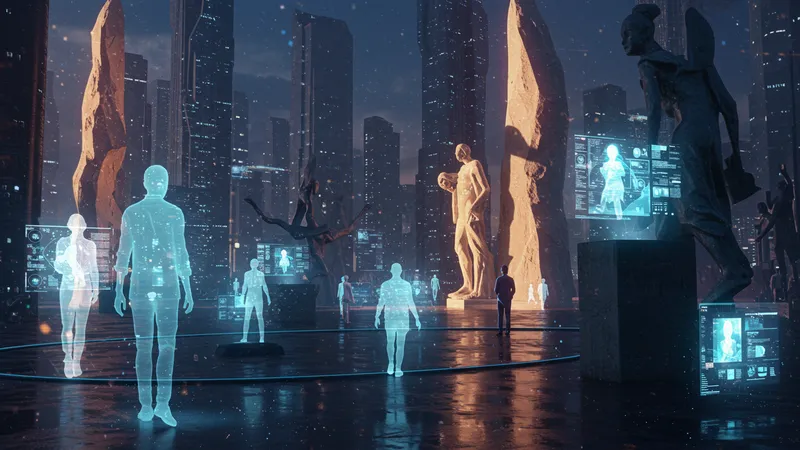
Inspiringly, digital footfalls morph artifacts into legacies that transcend mortality, echoing stories long after their tellers depart. It requires a deliberate effort to navigate technology's prismatic landscape, ensuring legacies reflect humanity’s enduring essence.
This evolution invites deeper reflections on interconnectedness and shared pursuits—extending beyond digital tokens to expressions of collective identity. The interplay suggests: in embracing our digital reality, humanity is afforded greater canvas to scribe its narrative.
Ultimately, crafting digital legacies aligns with an age-old endeavor: to chronicle stories, secure memories, and cherish the intricacies of human experience through innovations fathomed by technology. A reach into digital potential highlights our timeless continuum, merging historical depth with futuristic thought. But as this journey unfolds, there’s temptation to wonder about the concluding chapters poised beyond the horizon…
In the evolving dialogue around digital legacies, we find a compelling intersection of identity, technology, and humanity. These discussions beckon us to eternalize stories, tapping into the intangible beauty of digital perpetuity.

But far from being mere technological advancements, these legacies are poetic insights into our enduring aim to live on. They carve out space for reflection, driven by a desire to enchant lives, even as we tread new grounds in this digital saga.
If this exploration stirred your curiosity or alighted a sense of responsibility in managing your digital presence, consider sharing these insights. Bookmark proactive strategies, lest life's unexpected nature surprises you.